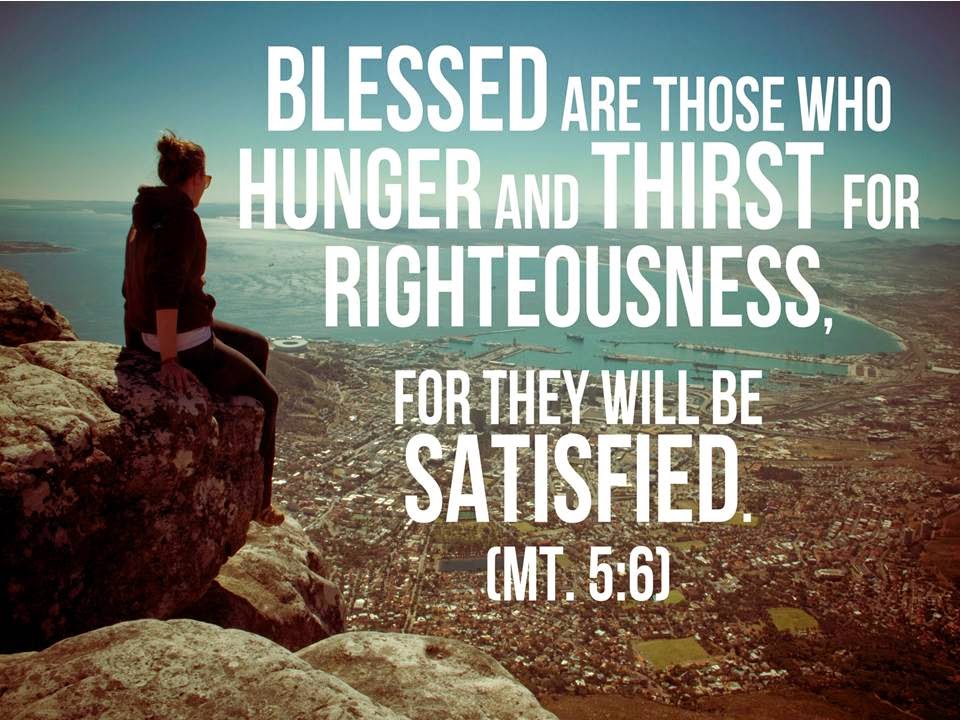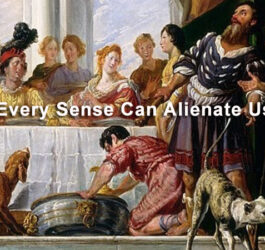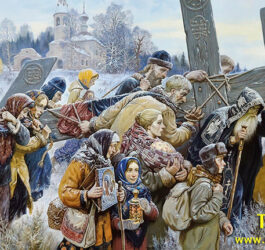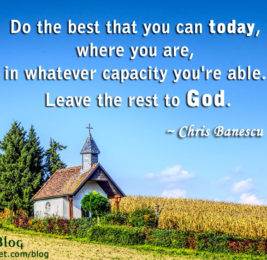 by Pope John Pall II (1999) –
by Pope John Pall II (1999) –
The Psalmist refers thus to those who follow the path of the commandments and keep them to the end (cf. Ps 119:32-33). Keeping the divine law, in fact, is the basis for obtaining the gift of eternal life, that is, the happiness that never ends.
To the question of the rich young man, “Teacher, what good deed must I do to have eternal life?” (Mt 19:16), Jesus responds: “If you would enter life, keep the commandments” (Mt 19:17). This response by Jesus is particularly important in our modern reality, in which many people live as though there were no God.
The temptation to organize the world and one’s own life without God or even in opposition to God, without his commandments and without the Gospel, is a very real temptation and threatens us too. When human life and the world are built without God, they will eventually turn against man himself. Breaking the divine commandments, abandoning the path traced out for us by God, means falling into the slavery of sin, and “the wages of sin is death” (Rom 6:23).
When human life and the world are built without God, they will eventually turn against man himself.
Sin is an Offence Against God
We find ourselves face to face with the reality of sin. Sin is an offence against God, it is being disobedient to him, to his law, to the moral norms which God has given to man, inscribing them on the human heart, confirming and perfecting them by Revelation. Sin pits itself against God’s love for us and turns our hearts away from him. Sin is “love of self carried to the point of contempt for God”, as Saint Augustine put it (De Civitate Dei, 14, 28). Sin is a great evil in all its many dimensions. Starting with original sin, to the personal sins committed by each person, to social sins, the sins which weigh heavily on the history of the entire human family.
We must be constantly aware of this great evil, we must constantly cultivate the subtle sensitivity and clear consciousness of the seeds of death contained in sin. This is what is commonly known as the sense of sin. Its source is to be found in man’s moral conscience; it is linked to the knowledge of God, to the experience of union with the Creator, Lord and Father. The more profound this awareness of union with God — strengthened by a person’s sacramental life and by sincere prayer — the clearer the sense of sin is. The reality of God lays open and sheds light on the mystery of man. We must do all that we can to make our consciences more sensitive, and to guard them from becoming deformed or imperceptive.
Sin pits itself against God’s love for us and turns our hearts away from him.
Form Our Humanity in Image and Likeness of God
We see what great tasks God has put before us. We must truly form our humanity in the image and likeness of God, to become people who love the law of God and want to live according to it. The Psalmist cries out: “Have mercy on me, O God, according to your steadfast love; according to your abundant mercy blot out my transgressions. Wash me thoroughly from my iniquity, and cleanse me from my sin” (Ps 51:1-2). Is this not for us a touching example of the man who presents himself repentant before God? He desires metanoia for his own heart, so that he may become a new creature, different, transformed by God’s power.
we must be faithful to the end
Holiness is Attained by Sacrifice
Saint Adalbert stands before us. We feel his presence here because in this land he gave his life for Christ. For a thousand years he has been telling us, by the witness of his martyrdom, that holiness is attained by sacrifice, that there is no room here for compromise, that we must be faithful to the end, that we must have the courage to protect the image of God in our souls even if it means paying the ultimate price. His martyr’s death is a reminder to all that by dying to evil and sin they will enable the new man to come to birth in themselves, the man of God who keeps the Lord’s commandments.
__________________________________________________________
Excerpts from a Homily of Pope John Pall II from June 6, 1999 in Poland. (Minor organizational edits — broke up larger paragraphs into smaller ones — and additional bolded headings added to optimize readability by Chris Banescu.)





God bless you for this.